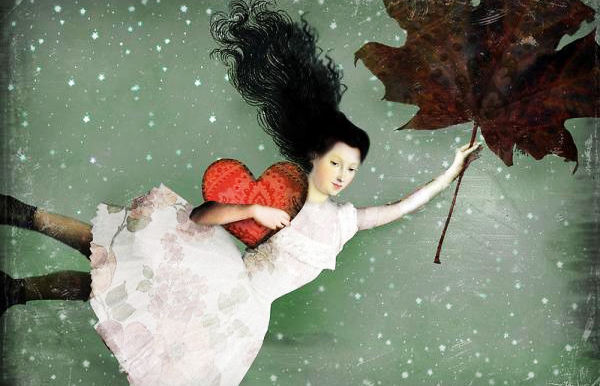pain
Will Facebook Turn Into A Virtual Cemetery?

Death star (Photo by Sebastian Pytka - Facebook)
Last year, a fire breakout in a music club killed 54 young people in Bucharest. I knew some of them personally, and some others by Facebook friendships. Their deaths not only left an open wound in the physical lives of us, the remaining ones alive, but were also marked online, as the dreadful memory of those victims remains online up to date.
How does a dead person’s Facebook profile look like? Hundreds of wall posts from friends expressing condolences and grief, memories shared with the wide world, and the remainder of pictures portraying them happy when they were alive and well. It’s a heart shattering experience to be bound this way to the dead, and a completely new fashion of keeping up with the grieving.
Up until recent years, when a loved one died, the family and friends would bury the remains of the deceased in a ceremony, mourned together with the attending guests, occasionally reminisced the dead in the following months and years according to their country’s and religion’s customs, and eventually life moved further, with the bad and the good, the pain and the renewal of wellbeing.
THE GENERATION THAT LIVES AND WILL DIE ONLINE
Now with people dying outside your close circle, you can easily learn about their demise from Facebook. The social network introduced various options for those who wish to keep the memory of the deceased fuelled, allowing you to pass administration rights to a friend to handle your account in the afterlife, or to turn your profile into a “Remembering” page.
Facebook is slowly turning in the old version of newspaper’s obituaries, where deaths were listed by family and relatives. But with the fast paced technologies emerging, one cannot help but wonder: will this generation that lives, breathes, works, loves and breaks-up online happen to also die online?
When I think of the thousands of friends I have on Facebook, I realize I know around 300 in person, while with the rest I interact here and there occasionally. With some – never. And yet, these people who have been on the network for almost 10 years now, some have died already. I learned about former work colleagues, acquaintances and strangers who passed away straight from Facebook. And I understand that with the passing of years, my friends, my acquaintances and people I worked with, loved a long time ago, shared a coffee with one day, or simply chatted with, will die, and the more we grow old, the more I’ll see their deaths online, up until the point the network will look like a 40 years old high school reunion where only half people made it because the others are no longer alive.
The recently deceased men and women in Orlando’s Pulse also had Facebook accounts. The victims of Istanbul, Paris, Brussels, Cairo, and many, many others mass crimes also had Facebook accounts. Like everyone else, at some point, did. But now, instead of grieving our loved ones and eventually trying to rekindle our connection to life after their loss, the outstanding memory of their death stays forever in our feed.
How do you feel about this? Have you had friends or family who died and their Facebook is still online? Do you find this tool useful or would you rather not be reminded everyday of your virtual friendship that still makes the other seem alive?
—
Ioana Cristina Casapu is the Managing Director of Art Parasites Magazine. She likes Brian Eno, airports and never says no to a good old Gin&Tonic.
Be the first to write a comment.
Your feedback

